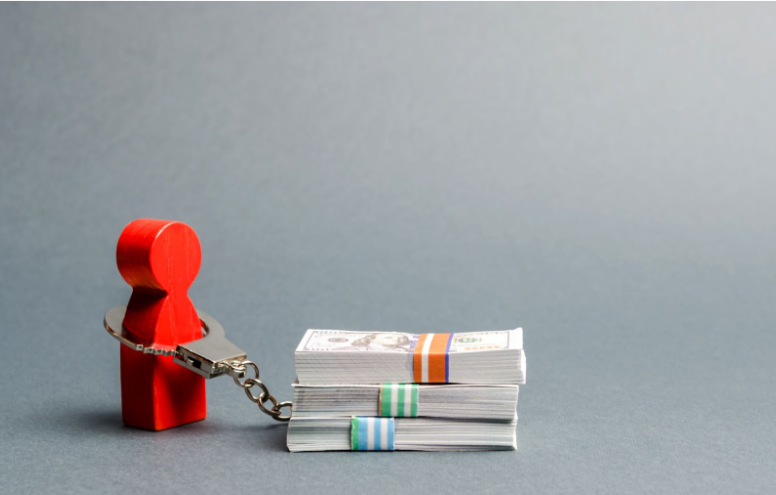
What is Financial Abuse and How Does it Affect Your Financial Health?
Financial abuse could be a less visible yet prevalent form of exploitation that can severely impact one’s financial health. But what does it mean? Essentially, it refers to situations where one person manipulates another’s economic resources without their consent. This often occurs in the context of intimate relationships but can also transpire among family members or between caregivers and their charges.
The prevalence of financial abuse in Canada is alarming. Studies indicate that financial abuse is a component of nearly 50% of all elder abuse cases, and a substantial number of intimate partner abuse cases also feature this aspect.
Financial abuse can take various forms
Economic Control
This involves one person having complete control over the other’s ability to acquire, use, and maintain financial resources. For instance, they may control all the household income, preventing the victim from accessing bank accounts or holding back their ability to work.
Employment Sabotage
Here, the abuser prevents the victim from obtaining or retaining employment. This could manifest as causing disturbances at home, sabotaging transportation, or even physically restraining the victim from going to work.
Resource Withholding
This involves the abuser not allowing the victim access to their own resources. This could mean not providing money for necessities, even when the victim is entirely dependent on the abuser.
Economic Exploitation
This happens when the abuser illegally or improperly uses the victim’s resources for their own benefit. This might involve stealing money, forging signatures on checks, or coercing the victim into signing over assets.
What are the Warning Signs of Financial Abuse?

Detecting financial abuse can be tricky. Here are some telltale signs:
- Unusual Financial Activity: Watch for sudden changes in financial situations, such as unexplained withdrawals or new credit cards.
- Relinquishing Financial Control: If someone inexplicably hands over control of their financial affairs to another person, especially when they’re capable of managing on their own, it could signal financial abuse.
- Lack of Knowledge about Financial Matters: Financial abuse often results in the victim having minimal knowledge about their own financial affairs due to the control exerted by the abuser.
What are the Effects of Financial Abuse?
The effects of financial abuse are far-reaching:
- Emotional Consequences: Victims may experience feelings of fear, stress, anxiety, depression, or even guilt. The constant tension around money and resources can severely affect mental health.
- Physical Consequences: In some cases, financial abuse can also be accompanied by physical abuse. The stress may also lead to physical health issues like sleep disorders, eating problems, and heart conditions.
- Long-term Financial Health Consequences: Financial abuse can lead to accumulated debt, poor credit scores, and limited access to financial resources. This can hamper victim’s ability to regain financial independence.
How Financial Abuse Affects Your Credit Score
The negative implications of financial abuse on one’s credit score are significant:
- Unwanted Debt: Abusers might take out loans or run up credit card bills in the victim’s name, increasing their debt and impacting their credit score.
- Missed Payments: Abusers may fail to make necessary payments, causing late fees and further damaging the victim’s credit score.
How to Protect Yourself from Financial Abuse
Here are some protective measures to consider:
- Stay Informed: Regularly check your bank statements, credit reports, and other financial documents. This will help you spot any unusual activity early.
- Maintain Financial Independence: Keep assets in your own name when possible. This includes bank accounts, credit cards, and other financial resources.
- Set Financial Boundaries: Establishing and maintaining financial boundaries in relationships is crucial to preventing possible financial abuse.
What to do If You are a Victim
Canada has specific laws and resources to protect against financial abuse:

- Involving Law Enforcement: If you suspect financial abuse, report it to your local law enforcement agency. They can work in conjunction with other authorities to investigate the situation.
- Legal Rights and Resources: Several legal rights protect individuals from financial abuse. Resources such as the Canadian Anti-Fraud Centre can provide further assistance and guidance.
Recovering from financial abuse can be difficult, but it is possible. Here are some steps to take:
- Seek Professional Help: Reach out to financial advisors, therapists, and support groups. They can provide practical advice, emotional support, and helpful resources.
- Develop a Financial Plan: A sound financial plan is key to rebuilding after financial abuse. This may involve creating a budget, identifying income sources, and addressing outstanding debts.
- Rebuild Credit: Rebuilding your credit is critical. Make timely payments, keep debt low, and work with a financial advisor to make sure your credit score improves over time.
Conclusion
Financial abuse can severely damage your financial health. However, by recognizing the signs, understanding its impacts, and taking proactive measures, individuals can protect themselves and start recovering. Remember, numerous resources are available to assist victims of financial abuse in Canada, and taking the first step towards seeking help is vital to regaining financial independence. If you are trying to manage the effects of financial abuse that have resulted in multiple debts, don’t hesitate to reach out to us at EmpireOne Credit. We can assist you in starting afresh and reducing your debt by up to 80%, while interest will stop immediately. You can reach out to us at (416) 900-2324 for a free appointment. Discover the joy that comes with living debt-free!





